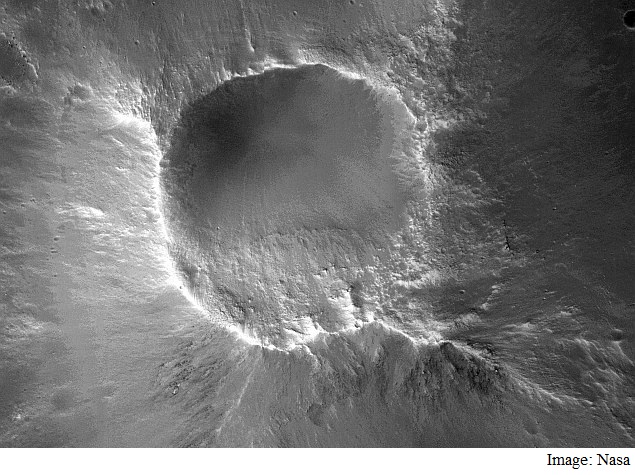- Home
- Science
- Science News
- Researchers Find Giant Exoplanet Orbiting a Cool Small Star
Researchers Find Giant Exoplanet Orbiting a Cool Small Star

Australian astronomers have discovered a strange exoplanet orbiting a small cool star 500 light years away.
With an orbit of just one-tenth that of Mercury, the planet orbits its star every 3.3 days, the researchers found.
"We have found a small star, with a giant planet the size of Jupiter, orbiting very closely," said researcher George Zhou from Research School of Astrophysics and Astronomy at The Australian National University.
According to the researchers, the prevalent ideas about how planets form cannot explain the new finding.
"It must have formed further out and migrated in, but our theories cannot explain how this happened," Zhou said.
In the past two decades more than 1,800 extrasolar planets (or exoplanets) have been discovered outside our solar system orbiting around other stars.
The host star of the latest exoplanet, HATS-6, is classed as an M-dwarf, which is one of the most numerous types of stars in galaxy.
Although they are common, M-dwarf stars are not well understood. Because they are cool they are also dim, making them difficult to study.
HATS-6 emits only one twentieth of the light of our sun.
The giveaway that the faint star had a planet circling it was a dip in its brightness caused as the planet passed in front of the star.
To confirm the signal was a planet and not a blip in the system, the researchers used one of the world's largest telescopes, the Magellan Telescope in Chile.
The findings were detailed in the Astronomical Journal.
Catch the latest from the Consumer Electronics Show on Gadgets 360, at our CES 2026 hub.
Related Stories
- Samsung Galaxy Unpacked 2025
- ChatGPT
- Redmi Note 14 Pro+
- iPhone 16
- Apple Vision Pro
- Oneplus 12
- OnePlus Nord CE 3 Lite 5G
- iPhone 13
- Xiaomi 14 Pro
- Oppo Find N3
- Tecno Spark Go (2023)
- Realme V30
- Best Phones Under 25000
- Samsung Galaxy S24 Series
- Cryptocurrency
- iQoo 12
- Samsung Galaxy S24 Ultra
- Giottus
- Samsung Galaxy Z Flip 5
- Apple 'Scary Fast'
- Housefull 5
- GoPro Hero 12 Black Review
- Invincible Season 2
- JioGlass
- HD Ready TV
- Laptop Under 50000
- Smartwatch Under 10000
- Latest Mobile Phones
- Compare Phones
- Tecno Spark Go 3
- iQOO Z11 Turbo
- OPPO A6c
- Samsung Galaxy A07 5G
- Vivo Y500i
- OnePlus Turbo 6V
- OnePlus Turbo 6
- Itel Zeno 20 Max
- Lenovo Yoga Slim 7x (2025)
- Lenovo Yoga Slim 7a
- Lenovo Idea Tab Plus
- Realme Pad 3
- Garmin Quatix 8 Pro
- NoiseFit Pro 6R
- Haier H5E Series
- Acerpure Nitro Z Series 100-inch QLED TV
- Asus ROG Ally
- Nintendo Switch Lite
- Haier 1.6 Ton 5 Star Inverter Split AC (HSU19G-MZAID5BN-INV)
- Haier 1.6 Ton 5 Star Inverter Split AC (HSU19G-MZAIM5BN-INV)

















